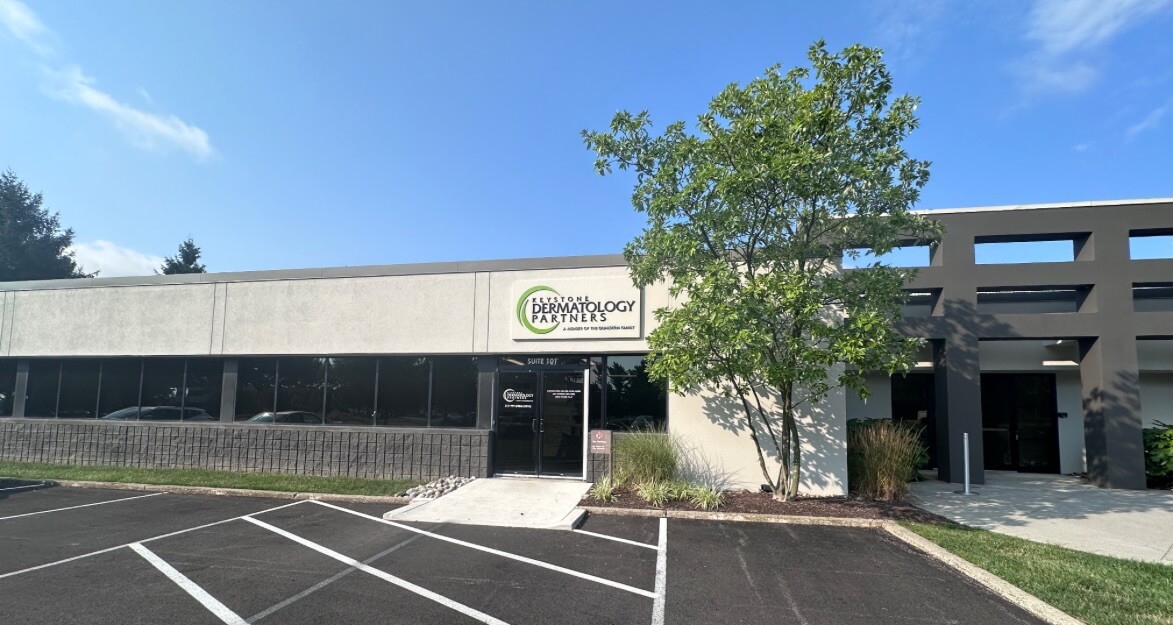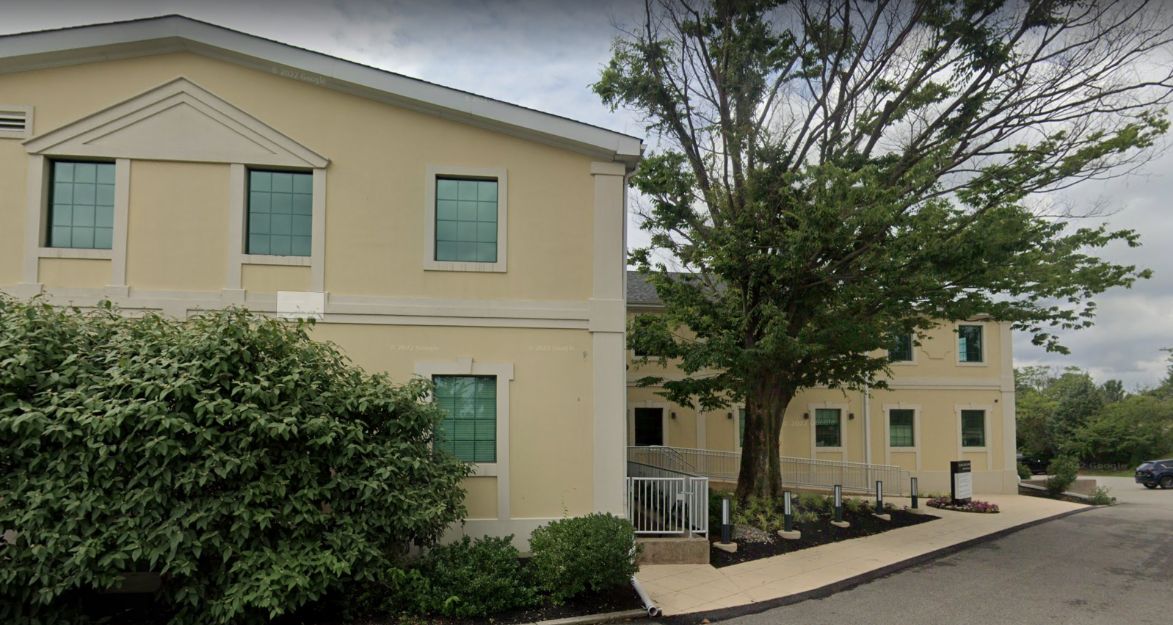Skin Cancer
What Is Skin Cancer and How Can You Treat It?
Skin cancer is the most common form of cancer worldwide. The Skin Cancer Foundation estimates that 1 in 5 Americans will develop skin cancer by age 70.
Skin cancer arises when abnormal cells in the skin grow uncontrollably, often beginning with changes in moles or the appearance of new growths. The three most prevalent types of skin cancer are melanoma, basal cell carcinoma, and squamous cell carcinoma.
The Importance of Early Detection in Skin Cancer Prevention
Early detection is key to effective treatment and achieving the best outcomes. Regular full-body skin exams by a dermatologist are vital for early identification of skin cancer. Annual checks can catch mole changes or new growths before they progress.
At Keystone Dermatology Partners of Philadelphia, we are committed to helping you achieve and maintain optimal skin health through education, prevention, and early detection of skin cancer. Our focus on skin health and positive outcomes is central to our approach, which is why we offer total body skin exams as part of your annual appointment.
During a total body skin exam, our providers thoroughly assess the health of your skin, identifying any conditions or spots of concern. By making regular skin checks a part of your routine, you take proactive steps to protect your skin and ensure early intervention if necessary.
Schedule your comprehensive skin exam with Keystone Dermatology Partners today and take control of your skin health. Your well-being is our top priority, and we are here to support you every step of the way.
Examples of Skin Cancer
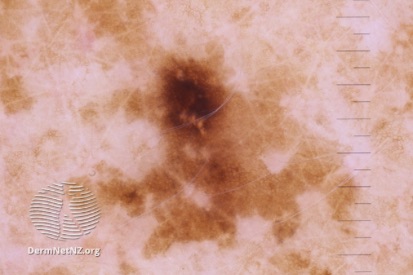
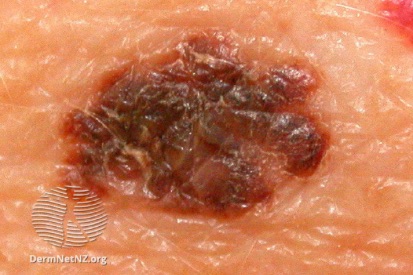
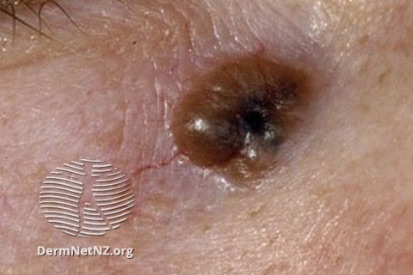
How to Spot Skin Cancer
Skin cancer can present in various ways, which is why it’s important to stay alert to any changes in your skin. Recognizing subtle or persistent skin changes early can significantly impact diagnosis and treatment outcomes for skin cancer. If you notice anything unusual, it’s best to consult a dermatologist at Pinnacle Dermatology for a professional evaluation.
Common skin cancer symptoms include:
- Changes in the size, shape, or color of existing moles
- New growths or spots that look different from other areas of your skin
- Sores or lesions that don’t heal, or heal and return
- Bumps that are pearly, waxy, or have a translucent appearance
- Rough, scaly patches or crusted areas on the skin
What Causes Skin Cancer?
As mentioned above, skin cancer often begins with damage to the DNA of skin cells, most commonly from ultraviolet radiation. Over time, this damage can lead to abnormal cell growth and cancer development.
At Pinnacle Dermatology, we understand the many factors contributing to skin cancer risk. We are committed to helping you identify and manage those risks through expert care, personalized prevention strategies, and routine skin exams.
Common skin cancer causes include:
- Excessive UV exposure from the sun or artificial sources like tanning beds
- Frequent sunburns, especially during childhood or adolescence
- Fair skin, light hair, and light-colored eyes (lower melanin levels mean less natural protection)
- A history of skin cancer or precancerous lesions
- Weakened immune system, due to illness or medications
- Exposure to toxic substances, such as arsenic
- Genetic factors or a family history of skin cancer
- Chronic skin inflammation or injuries in the same area over time
How to Prevent Skin Cancer
While skin cancer is one of the most common cancers, it’s also one of the most preventable. Every day presents an opportunity to protect your skin and reduce your risk through simple, consistent habits. From daily sun safety to staying aware of changes in your skin, skin cancer prevention starts with awareness—and ends with action.
At Pinnacle Dermatology, we empower our patients with the knowledge and care they need to take charge of their skin health. Through daily protection, self-checks, and annual total body skin exams, you can stay one step ahead and safeguard your health for the long term.
Daily Protection Habits
Daily protection starts with healthy skin habits. Use a broad-spectrum sunscreen with SPF 30 or higher every day, even on cloudy days, and reapply regularly. Wear protective clothing like wide-brimmed hats and long sleeves, and seek shade during peak sun hours (10 a.m. to 4 p.m.) to minimize UV exposure.
Importance of Regular Skin Self-Exams
Perform a monthly skin cancer self-exam to check for new moles or changes in existing spots. Use a mirror to examine all areas of your body, including hard-to-see places. If you notice anything suspicious, such as changes in shape, color, or size, schedule a visit with a dermatologist immediately.
Annual Total Body Skin Exams at Pinnacle Dermatology
An annual total body skin exam with a Pinnacle Dermatology provider offers a thorough, professional evaluation of your skin. During the exam, we check for any abnormal moles, lesions, or changes. Early detection dramatically improves treatment success, making these yearly exams vital to your skin health routine.
Skin Cancer Frequently Asked Questions
Skin cancer is a type of cancer that begins in the skin cells. It usually develops on skin exposed to the sun but can also occur in areas that are not exposed. There are three main types of skin cancer: basal cell carcinoma, squamous cell carcinoma, and melanoma. Basal cell carcinoma and squamous cell carcinoma are more common and have a higher cure rate, while melanoma is less common but is more aggressive.
The primary risk factor for skin cancer is exposure to ultraviolet (UV) radiation from the sun or tanning beds.
The signs of skin cancer can vary. Common signs include changes in the size, shape, color, or texture of a mole or spot on the skin. Itching, tenderness, or bleeding may also occur. It's crucial to seek medical attention if you notice any unusual changes on your skin.
Treatment for skin cancer depends on the type, size, and location of the cancer, as well as the patient's overall health. Common treatment options include surgical removal of the cancerous tissue, radiation therapy, and, in some cases, chemotherapy or Mohs surgery. Early detection is key to successful treatment.
You should apply sunscreen every day, even on cloudy days and during the winter, UV rays can still penetrate the clouds and cause skin damage.
A total body skin exam by a dermatologist is crucial as it serves as a proactive measure for the early detection of skin cancers, including melanoma, the deadliest form of skin cancer.
Skin cancers are often highly treatable when identified at an early stage. A comprehensive examination allows the dermatologist to assess moles, birthmarks, and any unusual skin changes that may indicate potential issues.
From Our QualDerm Family of Providers: The Importance of Skin Checks
Skin Cancer Treatments
Receiving a skin cancer diagnosis can feel overwhelming, but treatment options today are highly effective, especially when the condition is caught early. At Pinnacle Dermatology, we provide personalized care plans tailored to your specific type, stage, and location of cancer. Whether your treatment involves non-surgical methods or advanced surgical techniques, our experienced providers are here to guide you every step of the way.
Non-Surgical Treatments
For certain types and early stages of skin cancer, non-surgical options can be effective. These may include topical medications, cryotherapy (freezing), or targeted therapies that destroy cancer cells without incisions. Your Pinnacle Dermatology provider will determine if a non-invasive approach is appropriate for your condition.
Surgical Treatments
Surgical treatments are often the most effective option for removing skin cancer, especially in more advanced or high-risk cases. Procedures may include excisional surgery or Mohs micrographic surgery, which precisely removes cancerous tissue while preserving healthy skin. Pinnacle Dermatology offers expert surgical care tailored to your needs and diagnosis.
Featured Blogs
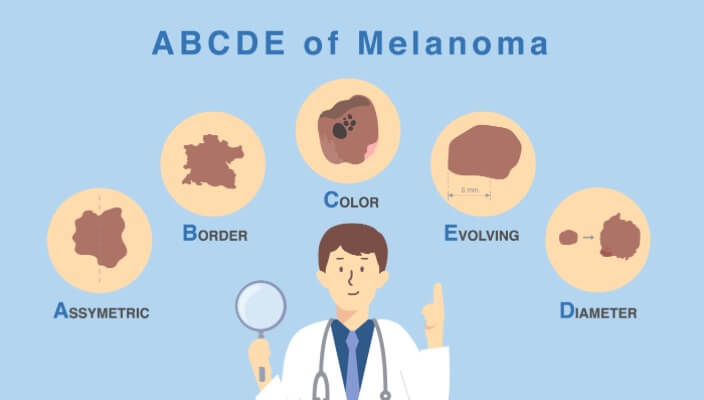
- Skin Cancer
- Skin Exams
With skin cancer cases rising year after year, it’s no surprise that people are itching to learn more about this life-threatening skin disease
Read More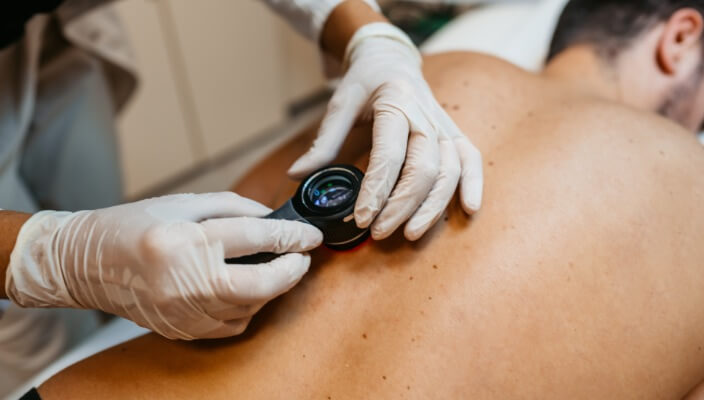
- Skin Cancer
- Skin Exams
In this blog, we’re covering what you need to know about five dangerous skin cancers, including basal cell carcinoma (BCC), squamous cell carcinoma (SCC), malignant melanoma, merkel cell carcinoma, and kaposi sarcoma.
Read More
- Skin Cancer
- General Dermatology
- Skin Exams
Navigating the landscape of Total Body Skin Exams: Uncover the comprehensive process, understand why it matters for skin health, and gain insights into what to expect during these essential dermatological examinations.
Read More
